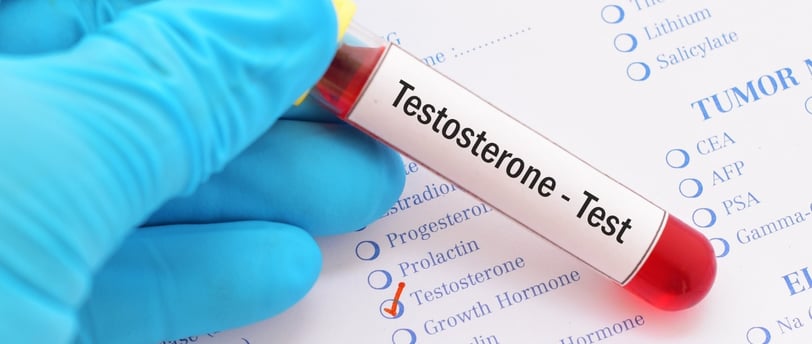The Problem of Low Testosterone
Unraveling Solutions for Men's Vitality and Health
PROBLEMS
5/11/20162 min read


Introduction:
Low testosterone levels, a condition known as hypogonadism, can significantly impact men's vitality and overall health. This article delves into the complexities of low testosterone, exploring its various implications and presenting holistic solutions to enhance men's well-being.
Understanding Low Testosterone:
Testosterone is a crucial hormone for male development, responsible for maintaining bone density, muscle mass, sex drive, and overall vitality. When testosterone levels dip below the normal range, men may experience symptoms such as fatigue, reduced libido, muscle loss, and mood changes.
Holistic Approaches:
1. Nutrient-Rich Diet:
- A well-balanced diet plays a pivotal role in maintaining optimal hormone levels. Including foods rich in zinc, vitamin D, and omega-3 fatty acids can support testosterone production. Examples include lean meats, fish, nuts, seeds, and leafy green vegetables.
2. Regular Exercise:
- Engaging in regular physical activity, particularly resistance training, can stimulate testosterone production. Exercise not only contributes to muscle development but also helps manage weight, which is crucial for hormonal balance.
3. Adequate Sleep:
- Quality sleep is essential for overall health and hormonal regulation. Aim for 7-9 hours of sleep per night to optimize testosterone levels and promote general well-being.
4. Stress Management:
- Chronic stress can contribute to hormone imbalances, including lower testosterone levels. Incorporating stress management techniques such as meditation, yoga, or mindfulness can positively impact hormonal health.
5. Avoiding Endocrine Disruptors:
- Certain chemicals in the environment, such as those found in some plastics and pesticides, may act as endocrine disruptors, affecting hormone production. Minimizing exposure to these substances can be beneficial for hormonal balance.
6. Maintaining a Healthy Weight:
- Obesity is associated with lower testosterone levels. Adopting a healthy diet and exercise routine to achieve and maintain a suitable weight can positively influence hormonal health.
Seeking Professional Guidance:
While lifestyle modifications can contribute to improved testosterone levels, it's essential to consult with healthcare professionals for a comprehensive assessment. Hormone replacement therapy (HRT) may be recommended for individuals with severe testosterone deficiency, and its implementation should be guided by medical professionals.
Conclusion:
Low testosterone can have far-reaching effects on men's vitality and health. Embracing holistic approaches, including a nutrient-rich diet, regular exercise, stress management, and adequate sleep, can positively influence testosterone levels. However, it's crucial to seek professional guidance for a personalized approach, ensuring a comprehensive strategy that aligns with individual health needs. By addressing the problem of low testosterone through both lifestyle modifications and medical interventions, men can enhance their overall well-being and vitality.
Please note: The information provided in this article is for educational and informative purposes only. It is essential to consult with healthcare professionals for personalized advice.
Important Disclaimer:
Before taking any actions, including making purchases through the links in our blog, or if you are considering any health-related activities, please read this important information. We strongly advise you to consult with specialists and medical professionals before taking any steps. Your health is of paramount importance, and the responsibility for it lies entirely with you. Remember to be responsible for yourself and your health!
Important Information | About Us | Contact Us | Privacy Policy | Terms and Conditions | 2014-2025 VirilityMastery.com All Rights Reserved ©
